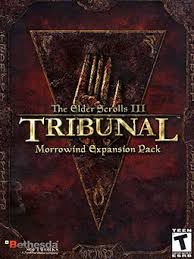Definition of Tribunal:
It is not possible to define the word ‘tribunal’ precisely and scientifically. The word ‘Tribunal’ is derived from the word ‘tribune’. Dictionary meaning of the word ‘tribune’ is a magistrate of Republican Period of Rome elected by the Roman Plebeians to defend their right; a champion of popular rights; a name for a newspaper; a platform for speaking from; a raised area for stand; bishop’s stall or throne. Tribunal judgment seat; Court of justice of arbitration; a body appointed to adjudicate in some matters. In common parlance dictionary meaning of the word ‘tribunal’ is ‘Court of justice’ or ‘seat of a Judge’.
Jurisprudentially, all human being are equal before the eyes of law irrespective of race, sex, colour, class or position in the society and are entitled to have equal protection of law. The ordinary Courts of law are also set up to establish this issue and more specifically, to settle disputes arising out between individuals.
Perhaps the most important of the functions of the State is that which it discharges as the guardian or order; preventing and publishing all injuries to itself, and all disobedience to the rules which it has laid down for the common welfare.
Tribunal in the general sense is any person or institution with the authority to judge, adjudicate on, or determine claims or disputes – whether or not it is called a tribunal in its title. For example, an advocate appearing before a Court on which a single Judge was sitting could describe that judge as ‘their tribunal’. Many governmental bodies that are titled ‘tribunals’ are so described to emphasize the fact that they are not courts of normal jurisdiction. For example the International Criminal Tribunal for Rwanda is a body specially constituted under international law; in Great Britain, Employment Tribunals are bodies set up to hear specific employment disputes. Private judicial bodies are also often styled ‘tribunals’. The word ‘tribunal’ is not conclusive of a body’s function.
Similarities between Tribunal and Court:
All tribunals are not Courts, though all Courts are tribunals. The word ‘Court’ is used to designate those tribunals, which are set up in an organized state for the administration of justice. The word ‘tribunal’ is a wide import and the words ‘Court’ and ‘tribunal’ embrace with them the exercise of judicial power in all its term. ‘Courts’ and ‘tribunal’ act ‘judicially’ in both senses and in the term ‘Court’ are included the ordinary and permanent tribunals and in the word ‘tribunals’ are included all others which are not so included.
The tribunals, if not Court, have got many of trappings of the Court, a tribunal when performs the functions of a Court notwithstanding that it is tribunal, it is in more or less a Court and it has the power to decide and adjudicate the matter with a judicial bent of mind and in accordance with law both substantivb>
Though there are some common features between the tribunals and Court but it is not impossible to find out some distinct features between these two. There are tribunals with many trappings of a Court, which nevertheless are not Courts in the strict sense of exercising judicial power.
In the case of Bangladesh vs. A.KM Jahangir Hossain[6] it was held that there is a distinction between a Court and a Tribunal. The Court has a clear and distinct connotation whereas a tribunal assumes wide range of character. It may be a Judicial Tribunal and in between there are various ranges of adjudicating authority, which are more often called administrative tribunals. But there is a common element, the authority may be judicial or administrative, but the authority is to decide either a dispute or an offence, and it is to decide on fact and apply the rules to them without considering executive policy.
Kinds of Tribunals:
There are two types of tribunals i.e. domestic tribunal and statutory tribunal. There can be other types of Tribunals, but at this stage of our discussion we shall discuss only these two types of tribunals.
Domestic Tribunals:
The tribunals, which are domestic in nature deals only with the internal disciplinary principle of any institution. It is a non-statutory body. It settles the dispute between employer and employee. Court fee is not needed in domestic tribunals. It deals with the private matters rather than public matters. Tribunals of Bangladesh Bar Council, different clubs serve as examples of domestic tribunals. At present there are five tribunals of Bangladesh Bar Council to deal with different disciplinary issues relating to its members.The domestic tribunal is not a Court to follow procedures of the trial or enquiry according to the Civil Procedure Code, 1908. In appropriate cases, considering the facts and circumstances thereof, such a tribunal may arrive at a decision simply by questioning the accused and considering his explanation.
The Civil Courts have no power to look into the decisions of the domestic tribunal unless there is a breach of principle of natural justice and the decision is an act of bad faith and biased. The civil Court is not competent to sit over the decision of the executive Committee of the respondent Club unless it is proved that it is in a breach of principle of natural justice and the decision is an act of bad faith and biased.
In case of domestic tribunal, the enquiry officer is not to follow the procedure of a trial by a Court, he may, in appropriate cases, arrive at a decision simply by questioning the delinquent officer and considering his explanation.
Statutory Tribunal:
Statutory tribunals are established by the provisions of statutes. For example, in Bangladesh, Labour Appellate Tribunal is a statutory tribunal, which is established under section 38 of the Industrial Relations Ordinance, 1969. Where a special tribunal out of the ordinary course is appointed by an Act to determine questions as to such rights which are the creation of that Act, then, except, so far as otherwise expressly provided or necessarily implied, that tribunal’s jurisdiction to determine those questions is exclusive.
Administrative tribunals are the glaring examples of statutory tribunals. These tribunals deal with the disputes between a govt. employee and the govt. arising out of the rules and regulations relating to the service matter. For example, in India, the Administrative Tribunal formed under the Administrative Tribunals Act, 1985 resolves the disputes between a govt. employee and the govt. arising out of the rules and regulations relating to service matter. In Bangladesh, the Administrative Tribunals established under the Administrative Tribunals Act, 1980 perform similar duties.
Besides there are some special Tribunals like Nan 0 Shishu Nirjatan Damon Tribunal, Acid Oporadh Damon Tribunal, Speedy Trial Tribunal and other Special Tribunal established under the Special Powers Act, 1974. The Nan 0 Shishu Nirjatan Damon Tribunals are established according to the provisions of section 26 of the Nan 0 Shishu Nirjatan Damon Am, 2000 (Act No. VIII of 2000) in every district to try offences committed under the said Act. The Acid Oporadh Damon Tribunals are established as per the provisions of section 23 of the Acid Niyontron Ain, 2002 to try offences under the Act.
When the statutory tribunal (i.e. special tribunal set up under a special statute) has acted beyond the scope of the power vested in it by the statute, the jurisdiction of the Civil Courts to examine into such cases is not taken away even if the statute contains words purporting to exclude such jurisdiction. This certainly is not the same thing as saying that jurisdiction has been made to depend upon the correctness or otherwise of the suitor’s contention as respects the subject matter.
Selected Bibliography
Book
- Administrative law: H.W.R. Wade & C.F. Forsyth.
- Legal System of Bangladesh: Barrister Abdul Halim.
- Lectures on Administrative law: C.K. Takwani.
- Principles of civil litigation: Bangladesh perspective: Ishrat Azim Ahmed and Md. Ershadul Karim.
Website:
www.dailystar.net
















